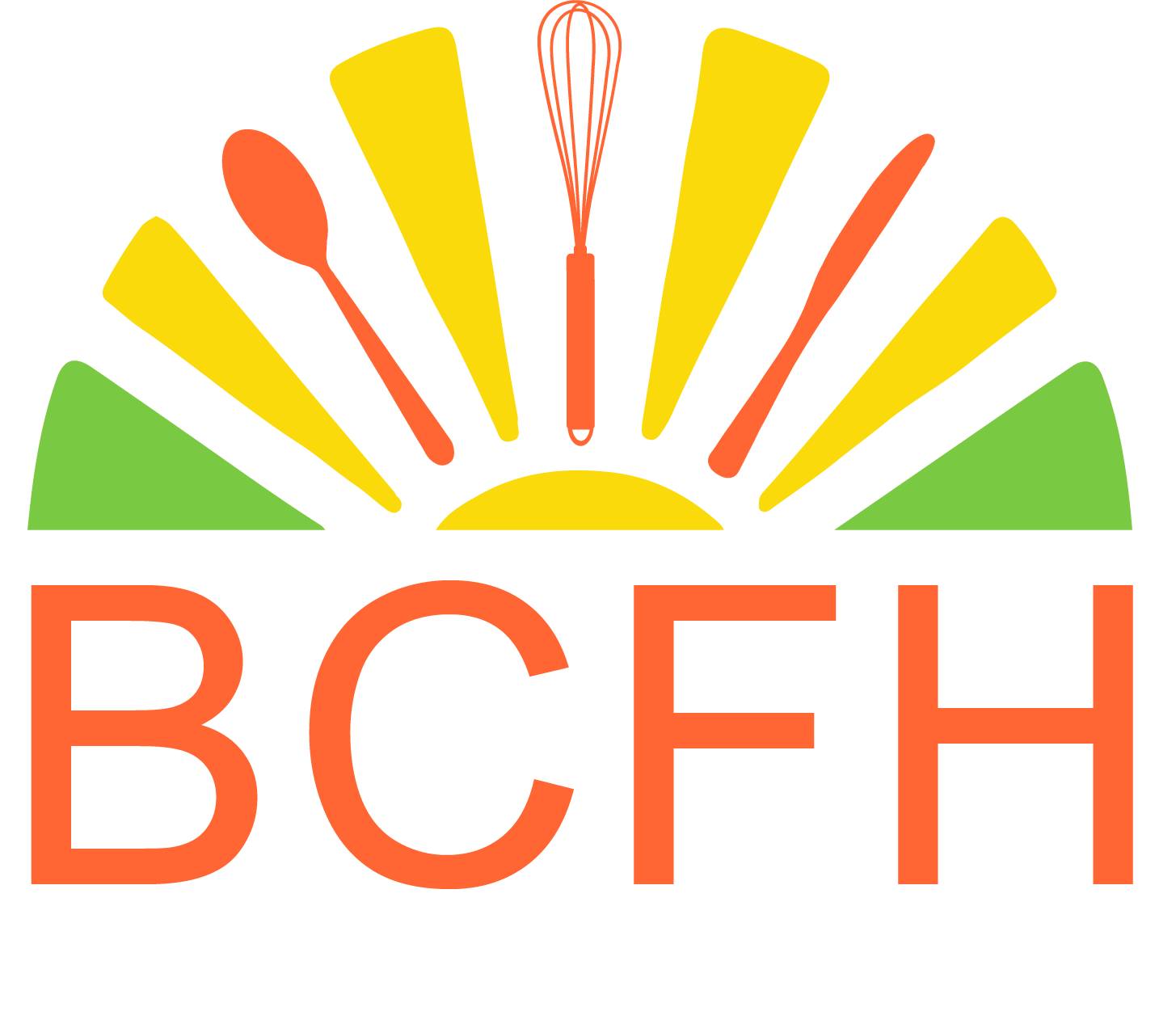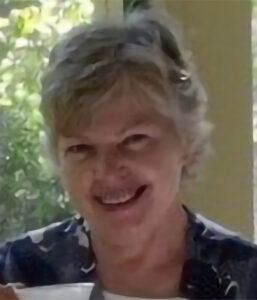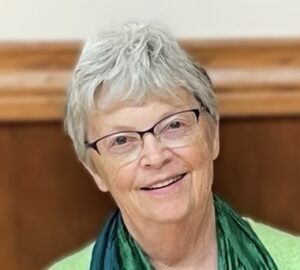Why Food History?
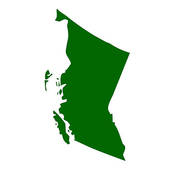 “Food is not just what we eat. It is an expression of who we are, how we live and the world we inhabit” (Kurlansky, 2007). What we eat plays a large part in defining our relationships with others. “Food, to a large extent, is what holds a society together” (Farb & Amelagos, 1980). It is used to strengthen the bonds between individuals, families and communities. In families certain foods define roles, rules, and traditions. Certain foods are the embodiment of spirituality, beliefs, traditions, customs, norms, practices and celebration. Eating is an agricultural act that compels us to understand the connections between eating and the land (Berry, 1990).
“Food is not just what we eat. It is an expression of who we are, how we live and the world we inhabit” (Kurlansky, 2007). What we eat plays a large part in defining our relationships with others. “Food, to a large extent, is what holds a society together” (Farb & Amelagos, 1980). It is used to strengthen the bonds between individuals, families and communities. In families certain foods define roles, rules, and traditions. Certain foods are the embodiment of spirituality, beliefs, traditions, customs, norms, practices and celebration. Eating is an agricultural act that compels us to understand the connections between eating and the land (Berry, 1990).
The BC Food History domain name was purchased in 2011, and the first activities appeared shortly thereafter. Dr. Linda Peterat came up with the idea and enlisted Dr. Mary Gale Smith and Dr. Mary Leah de Zwart to be part of the BC Food History Network. The BCFH has continued to research the history of food production and consumption in BC, Western Canada, and wherever else we find connections to food and history. Food history blogs on a regular basis began in 2016, and we have written over 150 blogs since then on a wide range of subjects.
We have also written and researched other topics, as well as academic papers. Please see the following paper for a rationale about incorporating historical perspectives into food studies by Gale and Mary Leah.
Objectives of BC Food History
We want to communicate and spread reliable and academically sound research and general information on the history of food, focusing on British Columbia and Western Canada, and expanding to other provinces and jurisdictions where applicable. We take a broad view of food history as encompassing historical accounts of all types of food sources, (indigenous, naturalized, and introduced), food production and food transformation, the associated cultural, economic, environmental, and sociological aspects of food, and individuals and groups who have made a significant historical contribution related to food.
Content
Over the past ten years we have added new blogs on aspects of food history. We operate informally. Comments are welcome, as are suggestions for new topics. We also have a Facebook page.
We welcome guest blog posts with a strong emphasis on food history.
Blog – What Makes BC Recipes and Food History Unique?
If someone asked you to define genuine British Columbian foods, what would you say? We could begin with the Indigenous peoples whose key foods have drawn from the bountiful natural resources of the province for over 10,000 years. When Captain Cook visited Nootka Sound in 1778, he took some of his men to visit the local villages, and one commented on the food quality: “We were fond of such excursions, altho’ the labour of them was very great, as, not only this kind of duty, was more agreeable than the humdrum routine on board the Ships, but as it gave us an opportunity of viewing the different people & countries, and as another very principal consideration we were sure of having plenty to eat & drink, which was not always the case on board the Ship on our usual allowance”.
We have posted 150 new blogs on various topics of food history. We have looked at Indigenous foods; imported foods; agricultural crops; community cookbooks; every type of food and foodways that can be considered unique or special to BC.
Food History Research
Research papers on a variety of food history topics are welcomed.
Acknowledgments
The BC Food History acknowledges grants and contributions of individuals and organizations since its establishment in 2011.

THEN/HIER [The History Education Network] and individual contributions enabled the purchase of the first domain name, web hosting and the barebones of the website.

THESA ( BC Teachers of Home Economics Specialist Association) sponsored the Eat Your History student contests by providing prize money and publicity.

The Canadian Home Economics Foundation has contributed grants from various funds over the years to enable the maintenance and continuous updating of the website
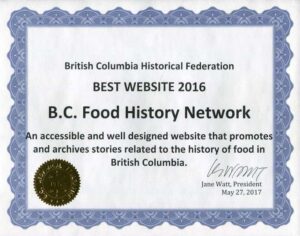
British Columbia Historical Federation recognized the website of the BC Food History Network in a 2016 Best Website Award.
